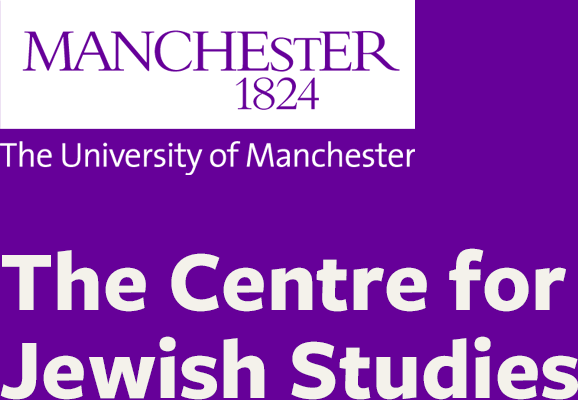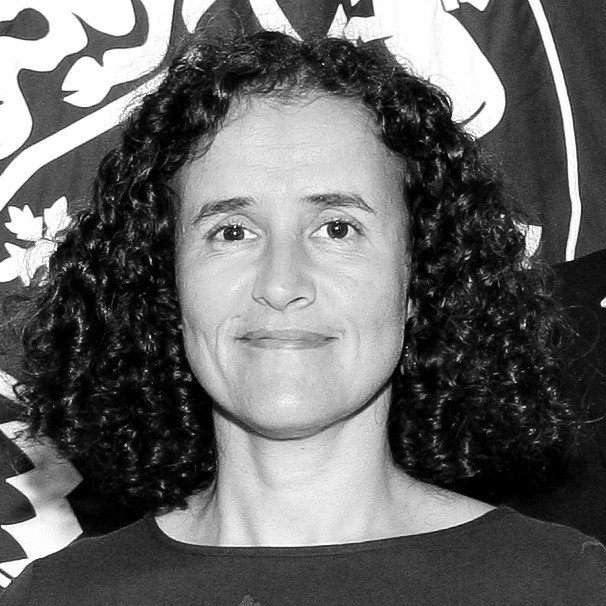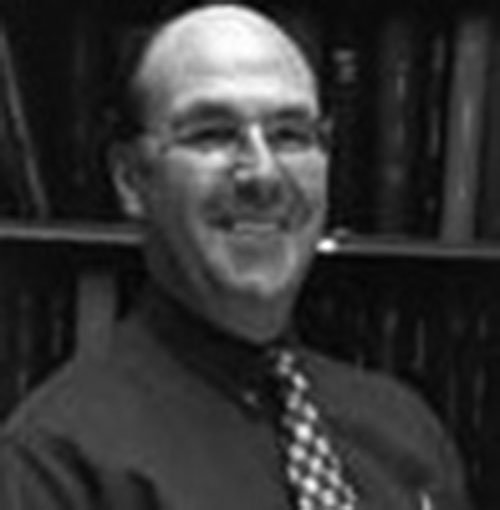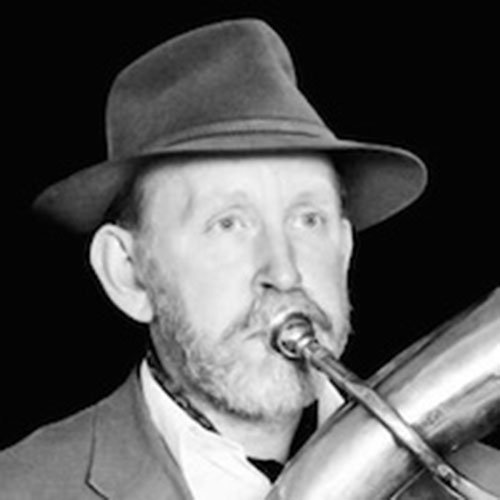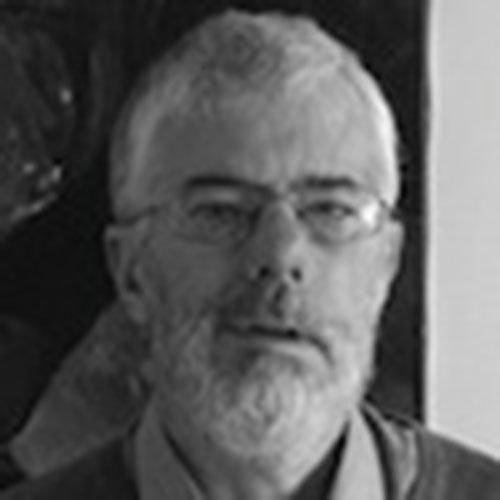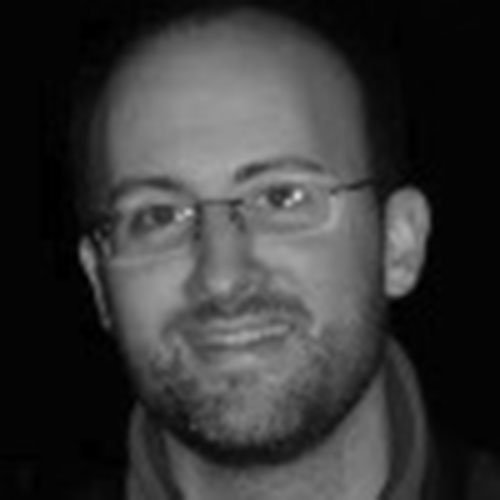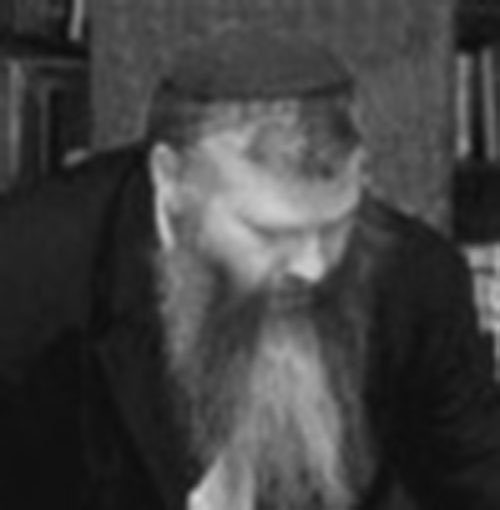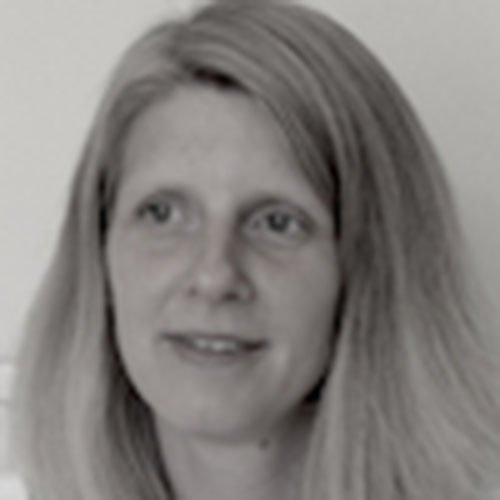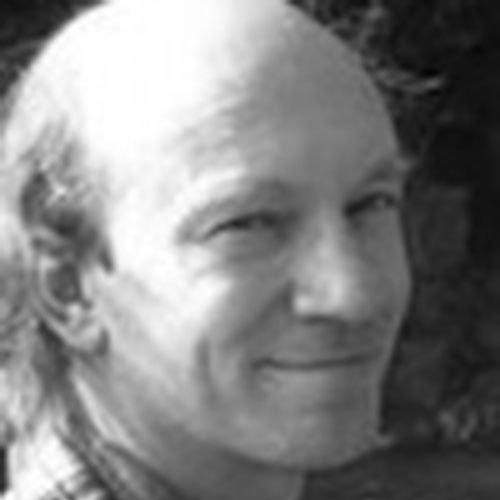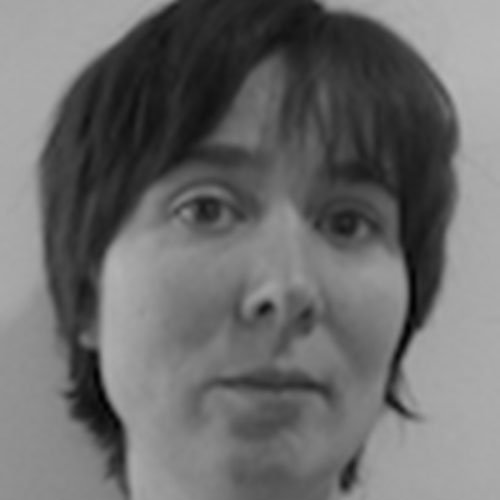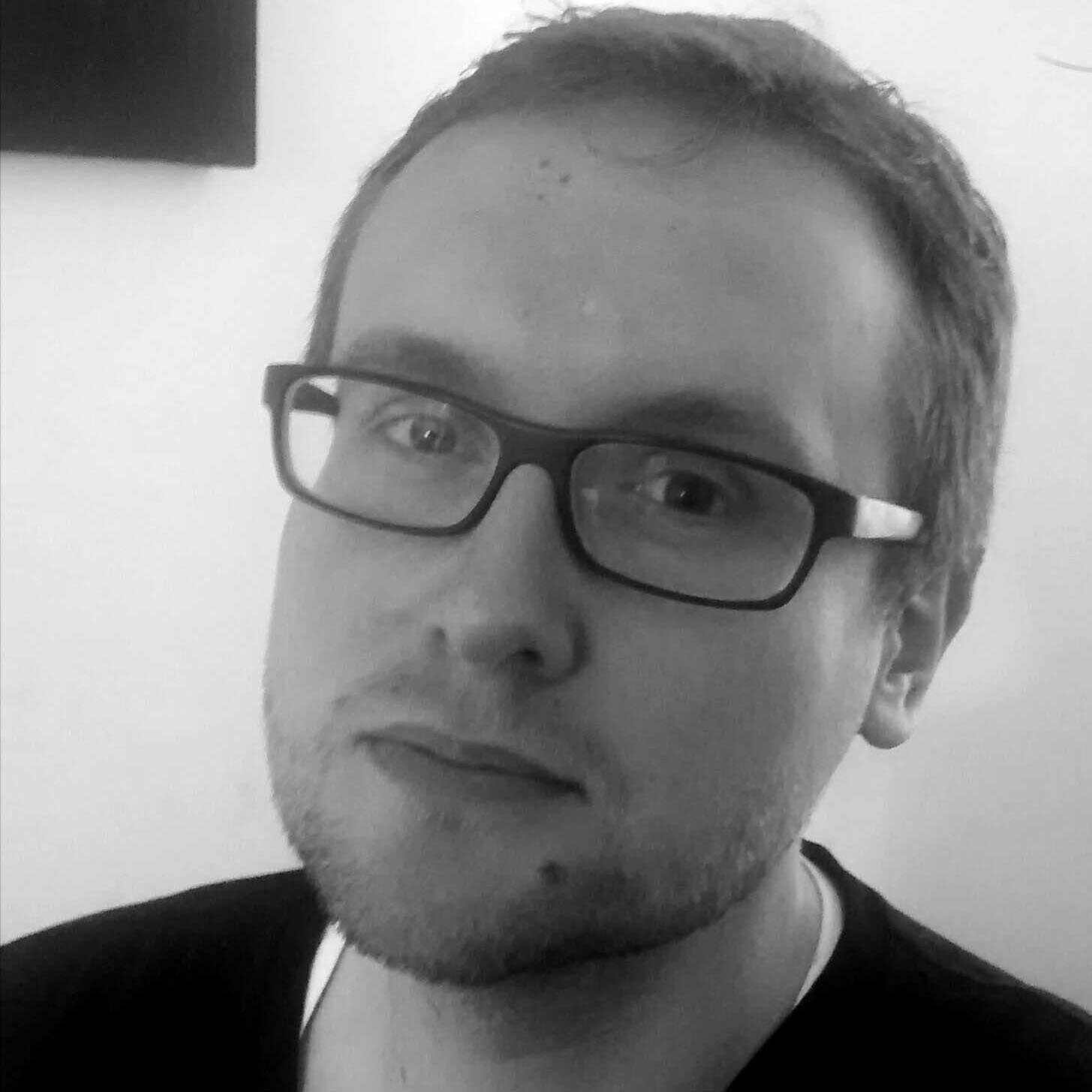Centre Staff and Honorary Research Fellows
Current Fellows
Emeritus Professor of Post-Biblical Jewish Literature; Fellow of the British Academy. Research interests include: the history of Judaism; the relationship between Judaism and Hellenism in the Second Temple and Talmudic periods; early Jewish Bible interpretation, particularly Midrash and Targum; the Dead Sea Scrolls; the Jewish background to Christian origins; the interaction of Judaism and Christianity in Late Antiquity; early Jewish geography; early Jewish and Christian mysticism and magic, especially the Testament of Solomon and Heikhalot mysticism; the relationship of the latter to Gnosticism and its influence on the development of the mediaeval Qabbalah and German Hasidism; Jewish messianism. Major publications include: Rabbinic Texts and the History of Late-Roman Palestine (co-ed. 2010); Companion to the Dead Sea Scrolls: The Mystical Texts (2005); The Targum of Canticles (2003); Serekh ha-Yahad and Two Related Texts (1998); and Textual Sources for the Study of Judaism (1984).
Research Associate on the project Reckonining With Refugeedom: Refugee Voices in Modern History at the University of Manchester. Previously a lecturer at the Department of History at Yale University teaching modern Middle East History. Prior to which she was a Research associate in Israel and Palestine Studies within Middle Eastern Studies, in the School of Arts, Languages and Cultures at the University of Manchester. The project focused on the interwar and mandate-era history of Palestinian and wider Arab Levantine citizenship, nationality and popular politics within the framework of British and French colonialism and the expanding networks of emigration from the Arab region. She is also interested in the networks of emigration, and consequent Ottoman citizenship, of non-Levantine Arabs such as Algerians and Bosnians, settled in late Ottoman Palestine. Lauren received her PhD in History in 2014 from the School of Oriental and African Studies (SOAS), University of London, and her thesis was entitled "The 'Invention' of Palestinian Citizenship: Discourses and Practices, 1918-1937." She has previously taught at SOAS and Royal Holloway, University of London. Her publications include The Invention of Palestinian Citizenship, 1918-1947 (https://edinburghuniversitypress.com/book-the-invention-of-palestinian-citizenship-1918-1947.html).
Senior Lecturer in Israeli and Middle Eastern Studies. Research interests include: the Arab-Israeli Conflict; Israeli Society, Politics and Culture; Middle Eastern Jews; the relational consolidation of Jewish and Arab nationalisms within a comparative framework. Major publications include: 'Modern Middle Eastern Jewish Thought. Writings on Identity, Politics, and Culture, 1893–1958', edited with Zvi Ben-Dor Benite (2013), ‘Palestine, Arabized-Jews and the Elusive Consequences of Jewish and Arab National Formations’ (2007); ‘The “pre-Israel” and “in-Israel” History of Middle Eastern Jews’ (2005) [Hebrew], extended version in Dan Avnon, ed., Civic Tongue in Israel (2006); ‘Do Comparative and Regional Studies of Nationalism Intersect?’ (2005); ‘The Peace Process and Israeli Domestic Politics in the 1990s’ (2002); ’al-Yahud al-Sharqiyun wa-l-Sharq al-Awsat’ [Middle Eastern Jews and the Middle East]) (1998) [Arabic]. Teaching includes: The Question of Palestine/Israel (1882-1967); The Contemporary Middle East; Themes in the Formation of Arab and Jewish Nationalisms; Controversies in Collective Memory and Politics.
Honorary Research Fellow; LSA Collegiate Fellow in the Department of Romance Languages and Literatures at the University of Michigan. Research interests include: representations and lived experiences of ethnic and religious minorities, particularly Jews and Muslims, in France. Interdisciplinary work, intersecting with cultural studies, media studies, literary studies, and applied linguistics. Completed a PhD at the University of Manchester in June 2020 on the topic of Jewish-Muslim relations in France. Co-founder and coordinator of the Jewish-Muslim Research Network (JMRN), an interdisciplinary and international research network of over a hundred scholars of Jewish and Muslim studies.
Rylands Professor of Biblical Criticism and Exegesis emeritus; President of British Association of Jewish Studies (1999); President of Society for Old Testament Study (2012); Member of the international team editing the Dead Sea Scrolls under the auspices of the Israel Antiquites Authority; Founding editor of Dead Sea Discoveries; Editor of Journal of Semitic Studies. Research interests include: Dead Sea Scrolls and other Literature of the Second Temple period; Semitic Studies; and the use of the Old Testament in the New Testament. Major publications include: Exegesis at Qumran (1985; 2006); Temple Scroll Studies (ed. 1989); Jewish Ways of Reading the Bible (ed. 2000); The Complete World of the Dead Sea Scrolls (co-author; 2002; 2nd edn 2011); The Dead Sea Scrolls and the New Testament (2005); and Reading the Dead Sea Scrolls: Essays in Method (2013).
Senior lecturer in Division of Nursing, Midwifery and Social Work at the University of Manchester. Research interests include: Nursing work and war, Nursing in the Second World War. She has published a number of articles and book chapters on nursing work in the Second World War. Her current project aims to uncover the experiences of female Jewish refugees as nurses as they supported the war effort and the newly instituted NHS from 1948. Major publications include Brooks, J. (2018) Negotiating Nursing: British Army sisters and soldiers in the Second World War. Manchester University Press, Brooks, J. & Hallett, C. E. (2015) (eds) A Century of Nursing Wartime Practices, 1854-1953. Manchester University Press & Brooks, J. (2024) Jewish Refugees and the British Nursing Profession. Manchester University Press, which won the Lavinia Dock Award.
Zsófia Buda
Research Associate in Hebrew Manuscripts. Research interests include: Jewish-Christian visual discourse in the Middle Ages, Jewish manuscript and early printed book culture, Hebrew palaeography and codicology, the materiality of Jewish manuscripts. She graduated in Art History, Hebrew Studies and Medieval Studies, and obtained her PhD in 2012 at the Central European University, Budapest. Her dissertation was entitled “Sacrifice and Redemption in the Hamburg Miscellany. The Illustrations of a Fifteenth-century Ashkenazi Manuscript.” She created the catalogue descriptions of the Hebrew material for the Online Catalogue of Illuminated Manuscripts at the British Library. She also worked as manuscript cataloguer in the Polonsky Foundation Digitization Project at the Bodleian Library, and in the Hebrew Manuscripts Digitisation Project at the British Library. She was co-curator of the exhibition “Hebrew Manuscripts: Journeys of the Written Word” at the British Library (2020-2021).
Lucille Cohen
Honorary Research Fellow; former President of the Jewish Representative Council of Greater Manchester and Region; former President of the Zionist Central Council of Greater Manchester; Member of the Jewish Leadership Council; delegate, Board of Deputies of British Jews; Lucille was a visiting lecturer in the Department of Middle East Studies and taught from 1990-2001 in the University’s Centre for Continuing Education specialising in the history and archaeology of Jerusalem and the cross-cultural influences of mediaeval Spain. She writes occasional newspaper columns and has worked as a journalist on the Jerusalem Post, the Jewish Chronicle and the Jewish Gazette. She was acting editor of The Holyland (a Jerusalem fortnightly publication) and has edited academic work for the Hebrew University.
Adrian Curtis
Formerly Senior Lecturer in Hebrew Bible at Manchester University and now Honorary Research Fellow; Member of the Society for Old Testament Study, including service as Home Secretary, Committee member (also Programme Sub-committee and Publications Sub-committee). Elected President of SOTS for 2016. Currently editing the Phoenix Old Testament Guides series (for SOTS) and writing the volume on the Book of Judges. Research interests include: the relevance of the religious texts from Ras Shamra/Ugarit for the study of the Hebrew Bible, particularly the religion of Israel; the Book of Psalms; the possible interaction between ancient Israelite and what might be loosely termed ‘Canaanite’ beliefs and practices; and historical geography as applied to the study of the Bible. Main publications include: Oxford Bible Atlas 4th edition (2007; revised paperback edition 2009); Psalms (Epworth Commentary, 2004); Joshua (Old Testament Guides, 1994); and Ugarit: Ras Shamra (Cities of the Biblical World, 1985).
Jean-Marc Dreyfus is reader in Holocaust studies within the History division at the University of Manchester, United Kingdom. He holds a PhD from the University of Paris I – Panthéon –Sorbonne and was a post-doctoral fellow at the Centre for European Studies, Harvard University and the Centre Marc-Bloch in Berlin. CJS research seminar convener. Research interests include: Holocaust studies; Genocide studies/anthropology of genocide; History of the Jews in Europe (19th-20th Century); History of Jews in France (19th-20th Century); Economic history of France and Germany; Holocaust memory/politics of memory; Modern history of Alsace and Rebuilding post-war societies. He is the author of four books, including, co-authored with Sarah Gensburger, Nazi Labor Camps in Paris. Austerlitz, Lévitan, Bassano (New York, Oxford, Berghahn, 2011). He has recently edited a special issue of the European Review of History, on “Traces, memory and the Holocaust in the writings of W.G. Sebald”. He is one of the editors of the two volumes on Western Europe for the German project “Die Verfolgung der Juden, 1933-1945” (German Federal Archives/Institute für Zeitgeschichte Munich/Berlin). The Habilitation he defended in 2013 at Sciences-Po Paris on the topic: Deportees and Diplomats. The Diplomatic Negotiations following Deportation, 1945-2001. will be published in January 2015. He published in March 2014 an edited volume (with Lise Haddad): Une médecine de mort. Du code de Nuremberg à l’éthique médicale contemporaine (Paris, Vendémiaire). He is the co-organizer of the ERC research programme “Corpses of mass violence and genocide” (www.corpsesofmassviolence.eu).
Lecturer in Education (TESOL & Intercultural Communication) within the Manchester Institute of Education with the School of Environment, Education and Development. He holds a PhD Education and a Masters in Ethnomusicology from the University of Manchester and is joint director of the MA in Intercultural Communication and also the Manchester Global Award. He is currently a co-investigator on the AHRC-funded three-year (2014-17) large grant under the Translating Cultures theme, Researching Multilingually at the Borders of Language, the Body, Law and the State. He has research interests (pursued jointly with Dr Leah Davcheva) in the narratives of elderly Sephardim living in Bulgaria regarding the linguistic aspects of their life stories with special focus on Ladino, as published in Languages and Intercultural Communication and Bet Debora journals. He also has research, teaching and performance interests in klezmer as foregrounded by his joint founding and directing (with Ros Hawley) of the university's klezmer ensemble, The Michael Kahan Kapelye (the only assessed klezmer ensemble in the UK) from which current and former klezmorim perform variously at the Manchester Jewish Museum, and Muslim-Jewish Forum musical event each autumn, as well as for klezmer in words and music events in the Jewish community and in Jewish residential homes in the locality. His klezmer research focuses on the appropriate methodology for teaching such music in the conservatoire context and also the cultural politics of largely non-Jewish music students and members of the wider musical communities playing klezmer - a music rooted in the shtetls of eastern Europe but also with a diasporic presence in the New World, and a World Music current dynamism including a revitalisation in Europe - for largely Jewish audiences for whom the music has often become a familiar unfamiliar. There is a short documentary about the ‘Vessels of Song': Journeys into the Worlds of Klezmer’ concert.
Daniel Garner
Honorary Research Fellow; Previously a Lecturer in Jewish Studies: BA Hons (2002) and MA with Distinction (2003) at Lancaster University. Doctorate in Holocaust theology at the University of Manchester (2010). The thesis was published in 2012 by Gorgias Press as Antitheodicy, Atheodicy and Jewish Mysticism in Holocaust Theology. He has been a regular book reviewer for the journal Reviews in Religion and Theology (Wiley-Blackwell), and has had an article titled ‘The Nature of Ultra-Orthodox Responses to the Holocaust’ published in the Centre for Jewish Studies Melilah journal. He previously taught: Key Thinkers in the History of Western Philosophy, Introduction to the History of Jewish-Christian Relations, Introduction to Judaism and Theories of a Good Life at undergraduate level. Research interests include Holocaust theology, the ‘Problem of Evil’, the Kabbalah, Mysticism, religious experience and consciousness, criticisms of physical-materialism, ‘Death of God’ theology, as well as the general history of philosophy and theology in the Western tradition.
Sophie Garside
Honorary Senior Lecturer at the Universiry of Manchester from 2018. Previously a Senior Lecturer in Hebrew and Israel Studies; a regular participant in workshops and working conferences in the UK and Israel, having given a number of presentations on teaching methods and assessment, a former AQA Chief Examiner in Modern Hebrew for A and AS levels (2001-2003) and a previous adviser on the Teaching of Hebrew at the Division for Hebrew and Culture, Jerusalem, Israel. Research interests include: Hebrew language and literature, with a special interest in the effect of mother tongue of British students on the learning of Hebrew. Principal Teaching: Modern Hebrew Language; Hebrew Literature; Modern Hebrew Texts; Israeli Media, Israeli Cinema as part of the contemporary cinema in the Middle East; E-learning.
Cathy S. Gelbin (PhD, MA Cornell University) is Professor of Film and German Studies at the University of Manchester. A film historian and cultural studies scholar, she has worked on Holocaust representations and modern German-Jewish culture with particular interest in issues of gender, sexuality and race. She is co-editor of the Leo Baeck Institute Year Book for the Study of German-Jewish History and Culture (Oxford Journals) and serves on the Board of Directors and Trustees of the Leo Baeck Institute London. Book publications include The Golem Returns: From German Romantic Literature to Global Jewish Culture (2011), Jewish Culture in the Age of Globalization (co-ed. Sander L. Gilman, 2014) and Cosmopolitanisms and the Jews (with Sander L. Gilman, 2017). She is currently working on a study of Jewish dissidence in the Eastern Bloc. Personal webpage.
Professor Emeritus of Semitic Studies; Fellow of the British Academy; Co-editor of Journal of Semitic Studies. Research interests include: Semitic Languages; history of the alphabet; Ugaritic Studies; Hebrew and the Hebrew Bible; Aramaic and Syriac epigraphy and linguistics, especially Egyptian Aramaic, Nabataean, Palmyrene and Hatran Aramaic and Syriac; the Middle East in the Greek and Roman periods; Christianity and its literature; legal history (pagan and early Jewish legal documents). Major publications include: Aramaic Inscriptions and Documents of the Roman Period (2009); Leshono Suryoyo: First Studies in Syriac (2005); The Religion of the Nabataeans: A Conspectus (2001); The Old Syriac Inscriptions of Edessa and Osrhoene (1999); The Nabataean Tomb Inscriptions of Mada’in Salih (1993). A recently completed project was the editing of a translation from Russian (trans. Svetlana Khobya) of a book by Ilia Sholeimovich Shifman on The Palmyrene Tax Tariff (2014).
Michael C Hilton
Honorary Research Fellow; Rabbi of Kol Chai Hatch End Jewish Community, London; Lecturer in Vocational Studies, Leo Baeck College, London: Member, Council of Christians and Jews Theology Group: Founder Member of Sternberg Centre Jewish-Christian-Muslim dialogue group (1992-2010); Research interests include: Jewish-Christian relations and the history of Jewish customs and festivals, especially bar mitzvah, bat mitzvah and Jewish confirmation. Publications include: Bar Mitzvah: A History (2014): ‘Why We need a Haggadah for Jews and Christians’ (2007); ‘Forty Years of European Judaism - Thirty-Eight Years of Dialogue’ (2006); The Christian Effect on Jewish Life (1994; German ed. 2000); The Gospels and Rabbinic Judaism - A Study Guide (co-authored with Gordian Marshall, 1988; American ed. 1989; Japanese ed. 1992). Website: www.rabbim.co.uk
Emeritus Professor; Alliance Professor of Modern Jewish Studies and Co-Director of the Centre for Jewish Studies 1997-2009; Founder Editor of The Jewish Law Annual; past Chairman and President, The Jewish Law Association; past President of BAJS; Co-founding editor of Melilah: Manchester Journal of Jewish Studies (1999-2008); Director of the Agunah Research Unit, University of Manchester, 2004-2009. Research interests include: Biblical law, history and philosophy of Jewish law, especially Jewish family law and the problem of the Agunah. Major publications include: Agunah, The Manchester Analysis (2011); Essays on Halakhah in the New Testament (2008); Wisdom-Laws: A Study of the Mishpatim of Exodus 21:1-22:16 (2006); Studies in the Semiotics of Biblical Law (2000); Making Sense in Jurisprudence (1996); Making Sense in Law (1995); Law, Fact and Narrative Coherence (1988); Semiotics and Legal Theory (1985); Essays in Jewish and Comparative Legal History (1975), Theft in Early Jewish Law (1972). Full publications list on http://www.legaltheory.co.uk/lib_biblioBSJ1.html
Katharina Keim
Postdoctoral Fellow in Jewish Studies, Centre for Theology and Religious Studies at Lund University. Previously a British Academy Postdoctoral Fellow at The John Rylands Research Institute and the School of Arts, Languages and Cultures, working on ‘The Samaritan Correspondence of Dr Moses Gaster’. The project engaged directly with manuscripts and archive materials in the Gaster Samaritan Collections at The John Rylands Library, and aimed to re-evaluate Gaster’s contribution to the development of Samaritan Studies. Research interests include archival and collection studies, and the development, transmission, and translation of traditions found in Jewish, Christian, and Muslim traditions from Antiquity to the Middle Ages (and beyond). Publications include "Pirqei deRabbi Eliezer: Structure, Coherence, Intertextuality”(AJEC 96. Leiden: Brill, 2017), and “Cosmology as Science or Cosmology as Theology? Reflections on the Astronomical Chapters of Pirke deRabbi Eliezer,” in "Time, Astronomy and Calendars in the Jewish Tradition" (ed. Sacha Stern and Charles Burnett; Leiden: Brill, 2014).
Honorary Research Fellow; James Parkes Professor at the Parkes Institute for the Study of Jewish/non-Jewish Relations and History Department at the University of Southampton. Educated at the University of Sheffield (BA and PhD) and the University of Connecticut (MA), he was formerly historian for the Manchester Jewish Museum. He then moved to Southampton to be director of the Parkes Institute in 1986, developing it to be one of the largest centres for Jewish studies in Europe. Research interests include: British Jewish history in the late 19th and 20th centuries covering the social history of British Jewry, immigration issues and responses to the Jews; Holocaust studies (especially liberal democratic responses and post-war representation), refugee movements, immigration and ethnicity in modern British history and general issues of history, representation and the heritage industry. He is the author of eight monographs, including The Holocaust and the Liberal Imagination: A Social and Cultural History (Blackwell, 1994); The Holocaust: Critical Historical Responses (with Donald Bloxham, Manchester University Press, 2005); Remembering Refugees: Then and Now (Manchester University Press, 2006); Anglo-Jewry since 1066: Place, Locality and Memory (Manchester University Press, 2009) and The Battle of Britishness. His most recent book is Journeys from the Abyss: The Holocaust and Forced Migration (Liverpool University Press, 2018) and he is currently working on a study of Jacob Harris, a Jewish triple murderer in Sussex, 1734 and, with Dr Aimee Bunting, Co-Presents to the Holocaust. He is co-editor of the journal Patterns of Prejudice and deputy editor of Jewish Culture and History.
Les Lancaster
Honorary Research Fellow; Emeritus Professor of Transpersonal Psychology at Liverpool John Moores University, Visiting Professor of Psychology, University of Northampton. Research interests include: the cognitive neuroscience of consciousness and the psychology of spiritual traditions, with particular reference to Jewish mysticism. Major publications include: Spirituality and cognitive neuroscience: A partnership for refining maps of the mind (in press); Hermeneutic Neurophenomenology in the Science-Religion Dialogue: Analysis of States of Consciousness in the Zohar (2015); ‘’Kabbalah and Science,’ in A. Runehov & L. Oviedo, eds., Encyclopedia of Sciences and Religions (2013); Cognitive Neuroscience, Spirituality and Mysticism: Recent Developments (2010), Engaging with the mind of God: the participatory path of Jewish mysticism (2008); The Essence of Kabbalah (2005); Approaches to Consciousness: The marriage of science and mysticism (2004); The Elements of Judaism (2003).
Professor of Jewish History; Co-Director of the Centre for Jewish Studies; Head of the Department of Religions and Theology; Co-Editor of Melilah: Manchester Journal of Jewish Studies. He is an AHRC Leadership Fellow 2016-17 (The Doubting Jew) and was a Leverhulme Major Research Fellow for 2013-15 (Darwin's Jews). He was secretary of EAJS for 2010-14 and President of BAJS for 2014-15. Research interests include: the history of Jewish-Christian relations; modern Jewish thought and identity in a variety of contexts, including New Testament studies, the origins of Anglo-Reform and Anglo-Liberal Judaism, Israel and Zionism, Holocaust Theology, Darwinism, and atheism. Major publications include: Normative Judaism? Jews, Judaism and Jewish Identity (edited with Philip Alexander, 2012); Writing the Holocaust (edited with Jean-Marc Dreyfus, 2011); The Apostle Paul in the Jewish Imagination (2010); Children of Zion: Jewish and Christian Perspectives on the Holy Land (2008) and Claude Montefiore: His Life and Thought (2002). Teaching areas include: Religion and Evolution; the history of Jewish-Christian Relations; Holocaust Theology and Jewish Approaches to Jesus and Paul.
Yaron Matras
Professor in Linguistics; Editor of 'Romani Studies' (LUP); Series Editor 'Language Contact and Bilingualism' (Mouton). Research interests include: language contact and bilingualism, grammar and discourse, anthropological linguistics and dialectology, standardisation of minority languages and issues of language and identity. His current research is directed particularly to language contact, urban Multilingualism, Kurdish, and Romani. Major publications include: 'The Romani Gypsies' (Harvard, 2015); 'I met lucky people: The story of the Romani Gypsies (Penguin, 2014); Contact Languages (Mouton, 2013); A grammar of Domari (Mouton, 2012); Romani in Britain: The Afterlife of a Language (EUP, 2010); Language Contact (CUP, 2009); Markedness and Language Change: The Romani sample (Mouton, 2006); Romani: A Linguistic Introduction (CUP, 2002), as well as ‘Spoken Israeli Hebrew revisited’ (in: special issues of Journal of Semitic Studies, 2005).
Lecturer in East European Studies at the University of Manchester. Ochman’s PhD thesis examined the remembering of Polish-Jewish relations from the Second World War after the fall of Communist regime in Poland. Her research interests include: war memory and commemoration, urban memory, nationalism in Eastern Europe, population displacement, borderlands and ethnic minorities with a special interest in Polish-Jewish relations. Major publications include: ‘Memory of War and Cosmopolitan Solidarity’, in N. Glick Schiller and A. Irving, eds., Whose cosmopolitanism? (Berghahn Books, 2014); Post-Communist Poland - Contested Pasts and Future Identities (Routledge, 2013); ‘Collective Remembrance in Jedwabne: Unsettled Memory of World War II in Postcommunist Poland’ (History & Memory, 2006); ‘The Search for Legitimacy in Post-martial Law Poland: the Case of Claude Lanzmann's Shoah’ (Cold War History, 2006).
Ion Popa
Research Fellow at ICUB, University of Bucharest. MA (2009) and PhD (2014) from the University of Manchester, and over the years has been the recipient of several prestigious fellowships and awards, amongst them: the Fortunoff Research Fellowship at the Vienna Wiesenthal Institute for Holocaust Studies (2019); the Odobleja Fellowship at New Europe College, Bucharest (2018-2019); the Saul Kagan Claims Conference Advanced Shoah Studies Doctoral (2010-2012) and Postdoctoral (2016-2018) Fellowships, New York; the DRS Postdoctoral Fellowship at Freie Universität, Berlin (2015-2016); the Yad Vashem Postdoctoral Fellowship (2014-2015) Jerusalem; and the Tziporah Wiesel Fellowship at the Centre for Advanced Holocaust Studies, United States Holocaust Memorial Museum, Washington DC (2013). Dr. Popa is the author of The Romanian Orthodox Church and the Holocaust (Indiana University Press, 2017), which was awarded the Yad Vashem 2018 Book Prize for Holocaust Research. He is a specialist on Modern/Contemporary European History, with a focus on the Holocaust, religion and politics, and inter-ethnic/inter-religious relations, with a particular attention to Jewish-Christian relations.
Awarded a three-year Leverhulme Early Career Research Fellowship for a project entitled "Computational modelling of law - Sustainable legal AI from Roman legal sources" in 2019. The project is hosted by the School of Law at the University of Surrey in co-operation with the Alan Turing Institute and Surrey's Department of Computer Science. The research is primarily based on legal texts compiled by the order of Emperor Justinian (553 CE) with control text samples drawn from Rabbinic (Jewish) law of the same period. Former lecturer in Jewish Studies at the University of Manchester. Marton received his doctorate from the University of Manchester in March 2018. His project focused on the development of abstraction and scientific language in Rabbinic and Roman law. Marton's comparative approach to ancient legal texts encouraged to revisit the assumption of cultural interchange between Rabbinic and Roman cultures, and generated insights about their compositional and conceptual structure from the perspective of mutual isolation, ignorance and indifference. Marton is currently developing a long-term research project with the working title of "Computational modelling of law - From ancient Roman texts to sustainable legal AI innovation". He expects that the project focusing on closed historical legal systems will identify the methodological and technological obstacles hindering the computational modelling of open contemporary legal systems. The project is expected to contribute to the development of sustainable Artificial Intelligence tools based on semantically overloaded texts. Marton sits on the Committee of the British Association for Jewish Studies as the appointed Postgraduate and Early Career Research Representative since July 2016.
David Rue
Honorary research fellow, rabbi and chief justice of the Beit Din (rabbinical court) of Los Angeles. Rabbi Rue has taught advanced Talmud at Shalhevet School and is author of a book on about writing gittin (divorce documents) entitled Shem Meshmuel Veshemot Chaim / A Name from Shmuel and Living Names (Or Etzion: Merkaz Shapira Israel, 2012). He is currently researching a two volume Hebrew study of the Agunah problem.
Professor of Jewish Thought; Co-Director of the Centre for Jewish Studies. Research interests include: Literary structures of ancient Jewish literature; ancient Jewish Bible interpretation, including Midrash, Targum, Pesher and Re-Written Scripture; Hebrew manuscripts; the legal discourse of talmudic literature; questions of text coherence in biblical and post-biblical literature; the philosophical thought of Spinoza, Hegel, Husserl, Buber, Heidegger, Levinas and others. His current writing projects include a new phenomenology of reading. Between 2007 and 2012 he led a major AHRC Project on the Typology of Pseudepigraphic and Anonymous Jewish Literature of Antiquity, c.200 BCE to c.700 CE. This culminated in a monograph written in collaboration with Philip Alexander, Rocco Bernasconi and Robert Hayward, Profiling Jewish Literature in Antiquity. An Inventory, from Second Temple Texts to the Talmuds. Other major publications include: Forms of Rabbinic Literature and Thought (2007); Rabbinic Interpretation of Scripture in the Mishnah (2002), also accompanied by a Database (Midrashic Units in the Mishnah); Spinozas Theorie der Religion (1993) and The Interpretation of Speech in the Pentateuch Targums. A Study of Method and Presentation in Targumic Exegesis (1992). Teaching areas include: Talmudic Judaism and rabbinic texts; Jewish philosophy; and methodologies in the academic humanities.
Reuven Silverman
Honorary Research Fellow in Modern Jewish Thought; Rabbi of Manchester Reform Synagogue (Jackson’s Row) since 1977; Former Chairman of the British Assembly of Rabbis; Former Lecturer in Modern Hebrew and Modern Jewish Thought, University of Manchester. Research interests include: the Jewish reception of Spinoza; modern Jewish thought; the contributions of Jews to psychology and psychotherapy. He is currently co-hosting the 'Progressive Judaism Manchester Adult Learning Programme', a series of events asking: How do Reform communities make decisions about core issues in Jewish practice?, including a personal lecture entitled 'Strictly Come Davening: Examining the essentials of the prayer service'. Major Publication: Baruch Spinoza, Outcast Jew, Universal Sage (1991). Recent papers include: ‘Spinoza – Hero or heretic?,’ Sheffield Jewish Studies Workshop (2011); 'Beyond Judeo-Christianity – Towards "the One than whom no greater can be conceived,"' St Anselm Interfaith Lecture, University of Manchester (2010).
Postdoctoral Research Associate at the Centre for Jewish Studies working on the '50 Jewish Objects' project. Stefania studied at Ca’ Foscari University of Venice, where she obtained her PhD in 2013 with the thesis 'Hebrew Bibles from the Iberian Peninsula: patronage, production and circulation between the 13th and 16th centuries'. She was awarded a PhD grant from the National Research Council of Spain, participating in the ERC starting-grant INTELEG (The Intellectual and Material Legacies of Late Medieval Sephardic Judaism) and a one-year grant within the Doctoral Fellowship Program of a European Jewish Foundation. She catalogued the collection of Jewish marriage contracts held at the Biblioteca del Museo Correr of Venice, within the project Nuova Biblioteca Manoscritta. She was research associate of the first phase project led by Dr Renate Smithuis entitled 'Catalogue of Codices, Scrolls, and Other Texts in Hebrew Script in the University of Manchester (John Rylands) Library', for which she catalogued the documents in Hebrew script within the Library’s wider collection, whilst developing access to and actively promoting research and learning activities based on these materials.
Honorary Research Fellow. Formerly lecturer in Medieval Jewish Studies, Principal Investigator of the Catalogue of Codices, Scrolls, and Other Texts in Hebrew Script in the University of Manchester (John Rylands) Library Project (1/4/15-1/3/18) and Co-Editor of the Journal of Semitic Studies and Melilah: Manchester Journal of Jewish Studies. Research interests include: the interaction of Jewish, Christian and Muslim learning, society and culture and the transmission through Jewish channels of ideas from the Muslim world to Western Europe during the Middle Ages and beyond. As a post-doctoral researcher, she catalogued and studied the Cairo Genizah collection of the John Rylands University Library of Manchester, consisting of ca. 15,000 fragments. Major publications include: R. Smithuis and P.S. Alexander (eds), From Cairo to Manchester: Studies in the Rylands Genizah Fragments (OUP 2013), a critical Hebrew edition of Abraham Abulafia's Secrets of the Torah (forthcoming) and ‘Abraham Ibn Ezra`s Astrological Works in Hebrew and Latin: New Discoveries and Exhaustive Listing’ (2006). Teaching areas include: Introduction to Judaism; Religion and science in medieval times; Jewish Philosophy; Jewish-Christian-Muslim relations from the earliest times to the Middle Ages; Hebrew.
Honorary Research Fellow; Senior Lecturer in Sociology at Bangor University; member of the editorial board of Patterns of Prejudice. Research interests include: modern antisemitism, especially its interconnections with liberalism and nationalism and the emergence of sociology; critical theory; the history of modern intellectual thought; gender, nation, race and ethnicity; and modern German history. Major publications include: 'Durkheim’s and Simmel’s reactions to antisemitism and their reflection in their views on modern society' (in König, Mareike; Oliver Schulz, eds., Anti-Semitism in the 19th Century in International Perspective, Vandenhoeck & Ruprecht 2019); ‘Dialectic of Enlightenment. Philosophical Fragments’ (Sage Handbook of Frankfurt School Critical Theory, 2018); Beginning Classical Social Theory (Manchester University Press, 2017); ‘Intersectional individuality: Georg Simmel’s concept of “the intersection of social circles” and the emancipation of women’ (Sociological Inquiry 86:2, 2016); the edited volume of Antisemitism and the Constitution of Sociology (University of Nebraska Press, 2014); The State, the Nation and the Jews, Liberalism and the Antisemitism Dispute in Bismarck’s Germany (University of Nebraska Press, 2008).
Co-organizer of the Bogdanow lectures 2021 with Oscar-winning film director László Nemes. Convener of the Sherman Conversations 2017 on 'Gender and Jewish Studies', and guest editor of the special issue of Melilah (2019) on the same theme; organizer of the Centre for Jewish Studies Screen and Talk public film club. Professional doctorate in theological education at the University of Chester (2017). Current research records and analyses Jewish Orthodox female-only online prayer groups as part of the ‘British Ritual Innovation under COVID-19’ project. Previous research entitled Students in Public has developed resources to embed the public dissemination of student knowledge and understanding into teaching and learning practices. Publications include 'Pluralising practical theology: international and multi-traditional challenges and opportunities', Practical Theology (2020), 13.1-2, 123-136. Also published in: Andrew P. Rogers and Nicola Slee (eds.) (2021), Celebrating the Past, Present and Future of British and Irish Practical Theology. Roots, Shoots and Fruits. Routledge. Further journal articles on learning and teaching in religious studies in Higher Education. Teaching covers gender issues in contemporary Jewish and Christian communities.
Rothschild Foundation Hanadiv Europe Post-Doctoral Fellow at the Centre for Jewish Studies, working on an oral history of Limmud, the 40-year-old Jewish cross-communal conference organization founded in the UK, which now has branches in over 40 countries. She recently published Challenge and Conformity: The Religious Lives of Orthodox Jewish Women (2021), and has also conducted research on the first three Orthodox Jewish women to be awarded rabbinic ordination, as well as on the relationship between formal legal texts and Jewish women’s observance of dietary laws (to be published by the Faith Lives of Women and Girls Symposium, Queen’s Foundation, University of Birmingham). Lindsey has lectured in Jewish Studies at Cambridge, Oxford, SOAS, and King’s College London in recent years, as well as serving as Research Fellow and lecturer at London School of Jewish Studies since 2005. She has a PhD (Jewish Studies & Anthropology) from University College London; an MA (Prehistory) from the Hebrew University of Jerusalem; and a BA (Archaeology) from the University of Cambridge. In 2019 she founded a Jewish educational organization, the ‘Pop-Up Beit Midrash’, which provides courses in classical Jewish texts for a wide range of adult learners. She is a graduate of the Cambridge Senior Faith Leadership Programme, and in 2021 will receive Orthodox rabbinic ordination from Yeshivat Maharat, New York. Her reseach interests include Jewish women’s religious lives; anthropology of the British Jewish community; gender and rabbinic ordination; lived religion and its tensions with religious law.
Professor Emerita of modern French literature and thought at the University of Manchester, UK, with research interests in Simone de Beauvoir, gender studies, Jorge Semprún and in 'cultural memory work' relating to the post-Second World War period in France in literature, philosophy, film and the visual arts more generally. She is the author of four monographs:Simone de Beauvoir, Gender and Testimony (Cambridge University Press, 1999); Simone de Beauvoir (Routledge ‘Critical Thinkers’ series, 2004), Simone de Beauvoir (Reaktion Books, 'Critical Lives' series, 2009) and most recently, Jorge Semprún: Writing the European Other(Legenda-Maney, 2014) and two edited books, Women in Contemporary France (Berg, 2000, co-edited with Abigail Gregory) and Existentialism and Contemporary Cinema: a Beauvoirian Perspective(Berghahn Books, 2012, co-edited with Jean-Pierre Boulé). In 2016 she co-organised a day conference on The Holocaust & European Identity in Manchester.
Nina Valbousquet
Nina Valbousquet is a historian and author of two monographs: Catholique et antisémite : Le réseau de Mgr Benigni (CNRS, 2020) and Les âmes tièdes. Le Vatican face à la Shoah (La Découverte, 2024). For 2024-26, she was awarded the Rothschild Foundation Hanadiv Fellowship in European Jewish Studies - Catholic Odysseys: “Non-Aryan” Refugees, the Holocaust, and Pius XII’s Vatican (1930s-1950s). She is the editor of the special issue of the Revue d’Histoire de la Shoah on the Pius XII Archives and the Holocaust (2023) and the scientific curator of the exhibition on “The Churches and the Holocaust” at the Shoah Memorial in Paris (2022-2023). She is co-organizer of the Ecole Française de Rome 5-year research program and seminar on the Pius XII archives (2022-2026).
Associate Professor (Senior Lecturer) of Jewish Law, Family Law, and Jurisprudence, at the College of Law and Business in Ramat Gan and a Research Fellow at the Kogod Research Center for Contemporary Jewish Thought at Shalom Hartman Institute, Jerusalem. He was a Visiting Scholar at the Petrie-Flom Center for Health Law Policy, Biotechnology, and Bioethics, at Harvard Law School (Fall 2017), a Helen Gartner Hammer Scholar-in-Residence at the Hadassah-Brandeis Institute (Fall 2016), and a research fellow at the Agunah Research Unit at the University of Manchester (2007–2008). His research deals primarily with the dramatic changes in the family during the second half of the twentieth and the beginning of the twenty-first centuries, focusing mainly on marriage, divorce and reproduction. His publications include Assisted Reproduction in Israel: Law, Religion, and Culture (Brill Research Perspectives Series – Family Law in a Global Society, 2018), No Fault Divorce in the Jewish Tradition (Israel Democracy Institute, 2014 [Hebrew]) and Talmud-Based Solutions to the Problem of the Agunah (Agunah Research Unit, vol. 4, 2012).
Hannah Wilson
Hannah Wilson is a scholar in the field of memory studies and Holocaust studies. For 2025-2027, she has been awarded the Rothschild Foundation Hanadiv Fellowship in European Jewish Studies for her research project “These things are part of us, almost like limbs of our body”: The Material Memory of the Holocaust in Domestic and Familial Spaces”. Wilson is a former teaching fellow in Holocaust history at the Stanley Burton Centre for Holocaust and Genocide Studies, University of Leicester (2023-2025), and a former postdoctoral researcher at the Centre for Public History, Heritage and Memory at Nottingham Trent University (2022-2023). In 2023, she obtained her PhD from Nottingham Trent University for her thesis on the material memory of Sobibor death camp, where she participated in a series of archaeological excavations. Wilson is the co-editor of the recent volume “New Microhistorical Approaches to an Integrated History of the Holocaust” (De Gruyter Oldenbourg, 2023). She has presented her research across the world at leading institutions, and has received numerous scholarly awards and fellowships. In addition to her academic studies, Wilson works as the Outreach Officer for Generation 2 Generation Holocaust charity. She was the former Content Director of World ORT’s ‘Music and the Holocaust’ project, and is currently the Communications Officer for the British and Irish Association for Holocaust Studies.
Former Fellows
Wang Benli
Prof. Wang Benli was a visiting SALC fellow for 2014-15. He is a professor and Vice Head of the Humanities School of Suzhou University of Science and Technology, P.R. China, where he teaches, among other things, Jewish History and Culture. He has co-authored The Modernization Process of the World: Western Europe (2010) and co-translated Martin Gilbert's A History of the Twentieth Century, vol 2 (2001). Among his many articles in Anglo-Jewish history are '“Kindertransport”: A Movement of Flesh and Blood' (2012), 'The Cultural and Educational Achievements of British Jews in the 19th Century' (2012), 'The Jewish Labour Movement in Britain in the Late 19th and Early 20th Centuries' (2012), 'On the Emancipation of British Jews' (2010), 'Impact and Response: The Emigration Tides of Eastern European Jews and the British Society, 1881-1914 (2006), and 'The Origin and Development of Anglo-Jewish History Studies' (2004).
From 2007 till 2011 he has been AHRC Research Associate for the project on the ‘Typology of Pseudepigraphic and Anonymous Jewish Literature c.200 BCE to 700 CE’. Research interests include: the formative age of Rabbinic Judaism; the literary analysis of Rabbinic literature; the relationships between Mishnah and Tosefta; and Holocaust theology. He graduated from Bologna with a dissertation on ‘Jewish Theological Responses to the Shoah’, then took an MA in Jewish Studies in Manchester (with distinction), writing a dissertation on ‘Reasons for Norms in Mishnaic Discourse’ (published in Melilah). His PhD thesis in Bologna and Paris–Ecole Pratique des Hautes Etudes (Sorbonne) was on ‘Amei ha-aretz and Kutim in the Discourse of Mishnah and Tosefta’. He is now working for the Facoltà di Teologia di Lugano where he gives courses on Jewish Literature, Holocaust Theology and Introduction to Judaism. He has recently published the articles 'A Literary Analysis of the Genesis Apocryphon' published in Aramaic Studies and ‘Linguistic Incompleteness in the Tosefta’ published in the Journal of Jewish Studies. Along with Philip Alexander and Robert Hayward he collaborated to the volume entitled Profiling Jewish Literature in Antiquity. An Inventory, from Second Temple Texts to the Talmuds, written by Alex Samely. Currently he is giving courses of Introduction to Judaism and Holocaust Theology at the Facoltà di teologia di Lugano.
Maria Cioata
British Academy Postdoctoral Fellow, working on 'Moses Gaster: Eclectic Collector’. Research interests include: Hebrew Bible (especially narratives and wisdom literature); Apocrypha and Pseudepigrapha, narratology, reception history, history of scholarship, collection studies. Publications include The Testament of Job: Text, Narrative and Reception, London: T&T Clark/Continuum, 2012; “A Survey of the Gaster Collection in the John Rylands Library,” Bulletin of the John Rylands Library 89:2 (2013); and an edition and study of an unknown Slavonic version of the prose frame of the Book of Job in Scripta & E-Scripta 8/9 (2010). Teaching a course: ‘The Invention of Folklore’.
Brad Sabin Hill
Fellow in Wissenschaft des Judentums (Marmorstein Collection). Former Fellow in Hebrew Bibliography, Oxford Centre for Hebrew and Jewish Studies. Publications include Guide to the Marmorstein Collection (2017).
Adi Kuntsman’s research focuses on matters of violence in Israel / Palestine and in Jewish diasporas, in politics, culture and everyday life. Kuntsman’s past work examined the violence of Israeli nationalism as it emerged in LGBT and immigrant politics; the relations between anti-Semitic and Islamophobic violence; and the role of emotions in racist cultural formations. Currently Kuntsman is working on the intersections of Israeli militarism, war and digital media. Kuntsman’s major publications include: 'Queering Middle Eastern Cyberscapes' (co-edited special issue of Journal of Middle Eastern Women's Studies, 2012); Figurations of Violence and Belonging: Queerness, Migranthood and Nationalism in Cyberspace and Beyond (2009); 'Webs of Hate in Diasporic Cyberspaces: The Gaza War in the Russian-language Blogosphere' in Media, War and Conflict (2010); 'Written in Blood: Contested Borders and the Politics of Passing in Israel/Palestine and in Cyberspace' in Feminist Media Studies (2008); 'The Soldier and the Terrorist: Sexy Nationalism, Queer Violence' in Sexualities (2008).Kuntsman’s latest book, Digital Militarism: Israeli Occupation in the Age of Social Media, co-authored with Rebecca L. Stein, is forthcoming with Stanford University Press.
Assistant Professor at the Department of Ethnology and Cultural Anthropology at Adam Mickiewicz University since 2015. Previously a teaching assistant in the Department of Social Anthropology at the University of Manchester after completing his Postdoctoral Research Fellowship in the Department of Religious Studies and Theology on 'Becoming oneself, becoming another. Conversion to Judaism in contemporary Poland'. Research interests include: anthropology of religion, social belonging and boundaries, religious conversion, globalization, identity transformations, memory and trauma, ethics and morality, cultural imaginaries and representations of otherness, Jewish/Non-Jewish relations, Jewish social and religious life in the Diaspora with a specific focus on contemporary Poland and Eastern Europe, Jewish education and social activism in Eastern Europe after 1989, research methods and representation in social sciences, audio-visual media and creative arts in academic research. Prior to becoming affiliated with the Centre for Jewish Studies Jan defended his doctoral thesis, entitled 'Remaking of Jewish sociality in contemporary Poland: Haunting legacies, global connections' (2014), in Social Anthropology with Visual Media at the University of Manchester. Jan is also the author of 'The Passage', a research-based documentary about the young members of a Jewish Community in south-west Poland.
Natalie Polzer
Prof. Natalie Polzer was a visiting SALC fellow for Aug-Dec 2014. She is an associate professor of Religious Studies and Jewish Studies at the University of Louisville. Among her publications are 'Durkheim's Sign Made Flesh: the 'Authentic Symbol' in Contemporary Holocaust Pilgrimage' (2014), 'Misogyny Revisited: The Eve Traditions in Avot de Rabbi Natan, Versions A and B' (2012), 'The Secret of Jewish Femininity: Immanence, Ritual Purity and Domestic Romance' (1999), and 'Ideologies of Taharat Ha-Mishpahah in Contemporary Orthodoxy' (1996). She is currently working on a book entitled Feminist Commentary on the Babylonian Talmud: Mishnah Avot and Mishnah Eduyyot.
Norman Geras (1943-2013)
Norman was Professor Emeritus in Government. Research interests include: Marxism; the Holocaust; and the concept of crimes against humanity. Major publications include: Crimes Against Humanity: Birth of a Concept (2011); The Contract of Mutual Indifference: Political Philosophy after the Holocaust (1998). Solidarity in the Conversation of Humankind: The Ungroundable Liberalism of Richard Rorty (1995); Discourses of Extremity (1990); Literature of Revolution: Essays on Marxism (1986); Marx and Human Nature: Refutation of a Legend (1983); The Legacy of Rosa Luxemburg (1976). Since July 2003 he maintained a blog (normblog; which focuses on political and philosophical issues as well as other interests.)
Harry Lesser (1943-2015)
Harry was Honorary Research Fellow in Philosophy; Representative for the University of Manchester on the Greater Manchester Jewish Representative Council. Research interests included: History of Philosophy, especially Ancient Philosophy and Jewish Philosophy, and Ethics, especially Bioethics and Medical Ethics. At post-graduate level, he successfully supervised 18 PhD theses, 17 M.Phil theses and 19 MA dissertations. Publications include "Spirituality and Modernism" in Contemplations of the Spiritual, ed. Arya (2013); Justice for Older People (ed), (2012); "Dealing with morally difficult passages in the Hebrew Bible" in G. Brooke, ed. Jewish ways of reading the Bible (2000) and "Samson Raphael Hirsch" in Franks and Leaman, ed., History of Jewish Philosophy (1997). Talks included giving the Jewish point of view at interfaith presentations in Manchester and Salford. Teaching included: Philosophy of Law and Contemporary Metaethics.
Bill Williams (1934-2018)
Honorary Research Fellow; Founder, Honorary President and Historical Adviser of the Manchester Jewish Museum, now a remarkable success as a venue of exhibitions, a centre of cultural activity, a focus for education and a repository of archives and artefacts; Founder of the Manchester Studies Unit. Research interests include: Manchester Jewry; Holocaust testimonies; leadership in Anglo-Jewry; the reception and experiences of refugees to the Manchester region, 1933-1940. Major publications include: Jews and Other Foreigners: Manchester and the Reception of Refugees from European Fascism (2011); Jewish Manchester: An Illustrated History (2008); Sir Sidney Hamburger and Manchester Jewry. Religion, City and Community (1999); ‘Heritage and Community: Rescuing Manchester’s Jewish Past,’ in A. Kushner, ed., The Jewish Heritage in British History (1992); Manchester Jewry, a Pictorial History, 1788-1988 (1988); The Making of Manchester Jewry, 1740-1875 (1976).

